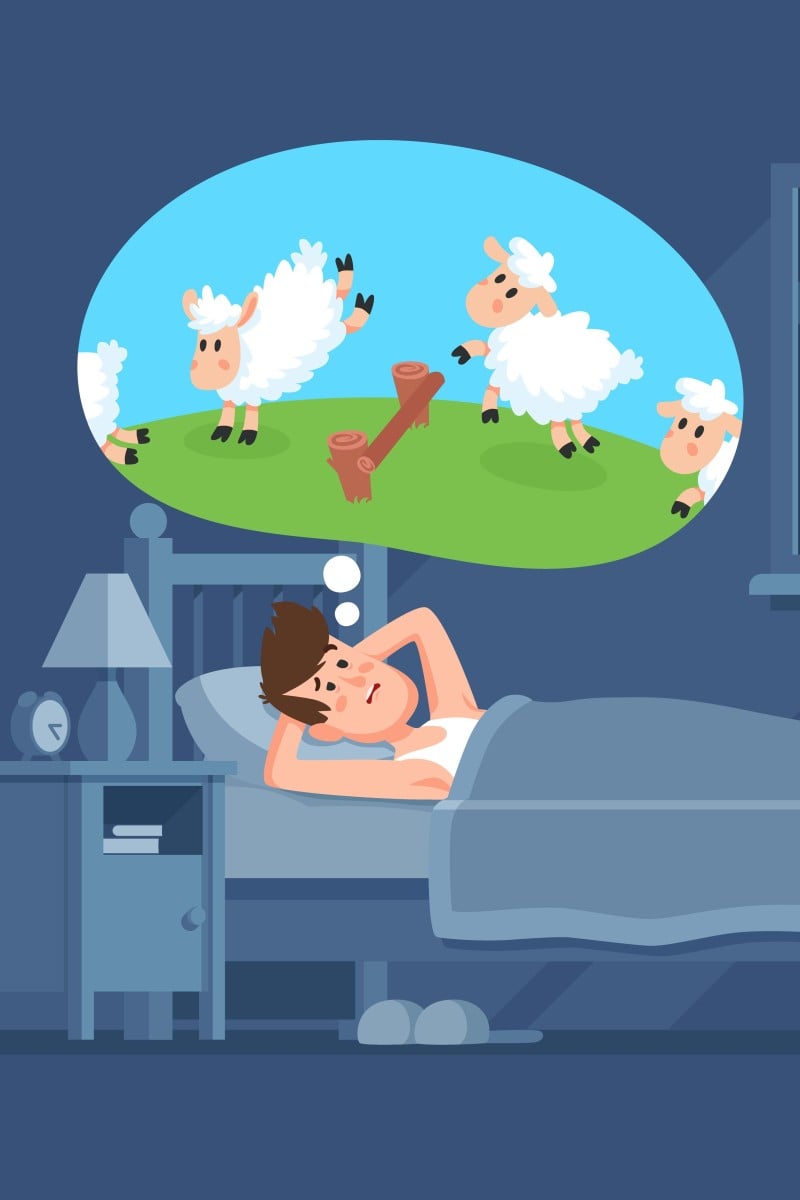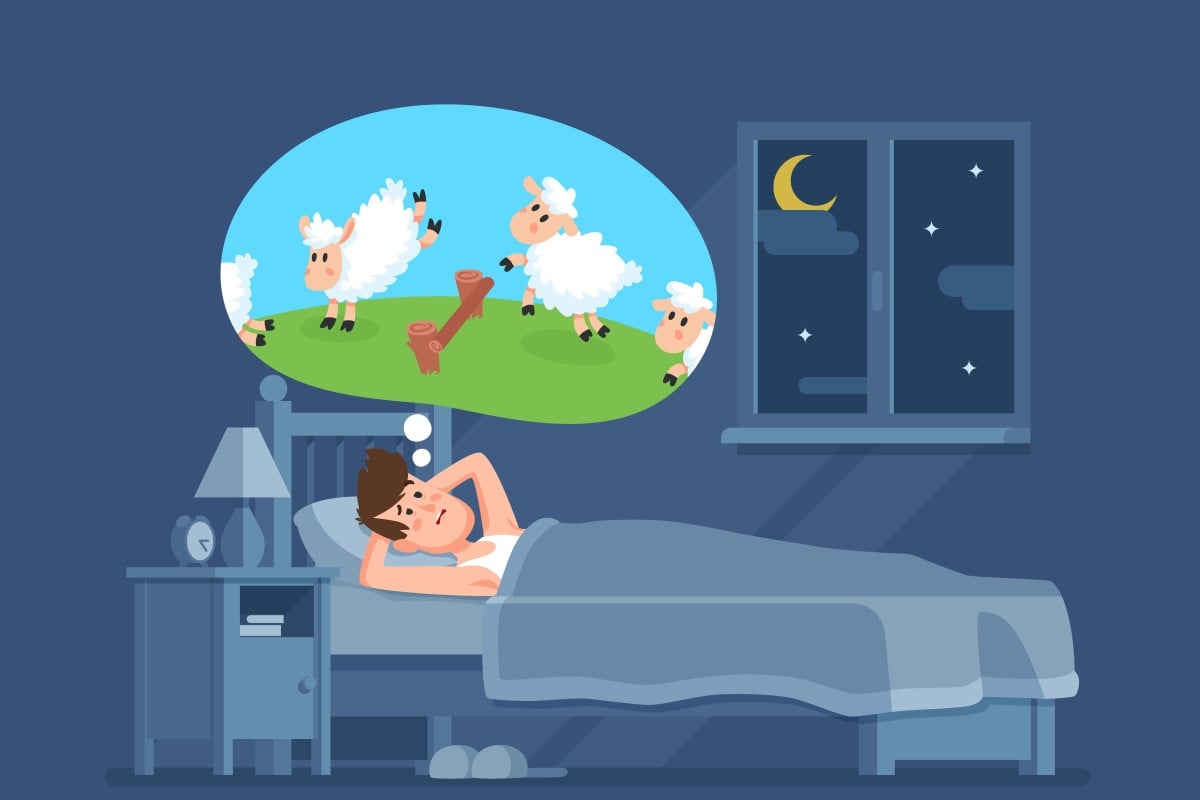
5 tips to help you get better sleep during the coronavirus pandemic
- Covid-19 has impacted our entire lives, especially our sleep schedule, and you might be dealing with stress and insomnia
- To start, go to bed at the same time every day and ban caffeine after 2pm
 The pandemic has caused sleep problems for many people, since our schedules are erratic and we're more likely to stay awake worrying.
The pandemic has caused sleep problems for many people, since our schedules are erratic and we're more likely to stay awake worrying.The pandemic has had an impact on everything, so it is no surprise that it also has interrupted our sleep.
We’re worried about everyone in our lives, we’re drinking too much tea and coffee, and even when we are in bed, we often are not experiencing good quality sleep, said psychologist Michael Breus.
“We’re just not able to handle this level of stress, and of course it’s coming out in our sleep,” Breus said.
Most countries’ health authorities say teens need eight to 12 hours of quality sleep each night, according to the US Department of Health and Human Services. And remember that is referring to quality, not just quantity. Many people might be feeling they need more sleep, even if they are getting what would have been considered a regular amount a year ago.
That’s because amid pandemic stressors, people are getting light and fragmented sleep, said Breus, author of “Good Night: The Sleep Doctor’s 4-Week Programme to Better Sleep and Better Health.”
Breus says it’s the perfect time to reassess our sleep patterns and try to get better shut-eye. We already know to limit screen time before bed and to stick to a routine, but here’s a few more tips.
We've certainly all been there before.
Wake up at the same time every day
For many students, online lessons have meant sleeping later, rolling out of bed and walking to their desk or kitchen table, still in pyjamas. But the importance of keeping a routine and schedule is even more important now, Breus said.
“We have an irregular sleep schedule going on because of the pandemic,” he said. “Now would be the perfect time to establish a better one.”
One important part of this is to wake up at the same time every day, even on weekends.
10 practical tips for falling asleep quickly
Set a cutoff for caffeine
We know that caffeine can impact sleep. Unfortunately, with many people at home throughout the day, it’s easier to keep returning to the kitchen coffee pot or to make cup after cup of tea. Breus suggests cutting out caffeine around 2pm, drinking plenty of water, and heading to bed around 10pm.
Get out for exercise
Exercise is consistently linked to better sleep. Try to exercise at least four hours before you head to bed, Breus suggests. “The more you exercise, the higher your quality of sleep,” he said. “You don’t have to run a marathon.”
For example, in the US National Sleep Foundation’s 2013 report on sleep, only about 56 per cent of people who did not exercise said they had very good or fairly good sleep; for people who vigorously exercised, 83 per cent reported good sleep, and even 76 per cent of light exercisers reported good sleep.
Are you guilty of revenge bedtime procrastination?
Improve your sleep space
Mary Pat Wallace, founder of The Luxury Bed Collection, has studied sleep since she was a mum of small children, realising loss of sleep was sapping her productivity. She encourages a technology-free bedroom, or cutting out electronics at least an hour before bedtime. Make sure the temperature of the room is between 18 to 21 degrees Celsius.
As for your bed, think about dressing it the same way you would dress at that temperature. Wallace suggests a sheet, a thin blanket and a duvet. She also said that your pillow and mattress should work together; if you sleep on your side, your spine should be in a straight line, parallel to the mattress. If you sleep on your back, you should feel supported throughout the spine’s curve, with no lower-back gap.
A cosy bed is a happy bed.
Have a plan to get back to sleep
Many people wake up in the middle of the night and stay awake thinking, finding it hard to get back to sleep. Have a plan so that this is not a scary or frustrating time.
First, realise that just being in bed can be rejuvenating, whether you sleep or not.
Second, don’t look at the clock. “Everybody does,” Breus said. “They instantly do the mental maths.”
Instead, Breus says to flip the script to lessen pressure and remove anxiety.
“Say, this is awesome. It’s 2.37 in the morning, I have to get up at 6.30, I’ve got four more hours. Who knows, maybe I’ll get some more sleep. I know if I lie here, I’m still going to get some level of rejuvenation. And let’s be honest, I’ve had no sleep before, and I’ve made it through my day.”